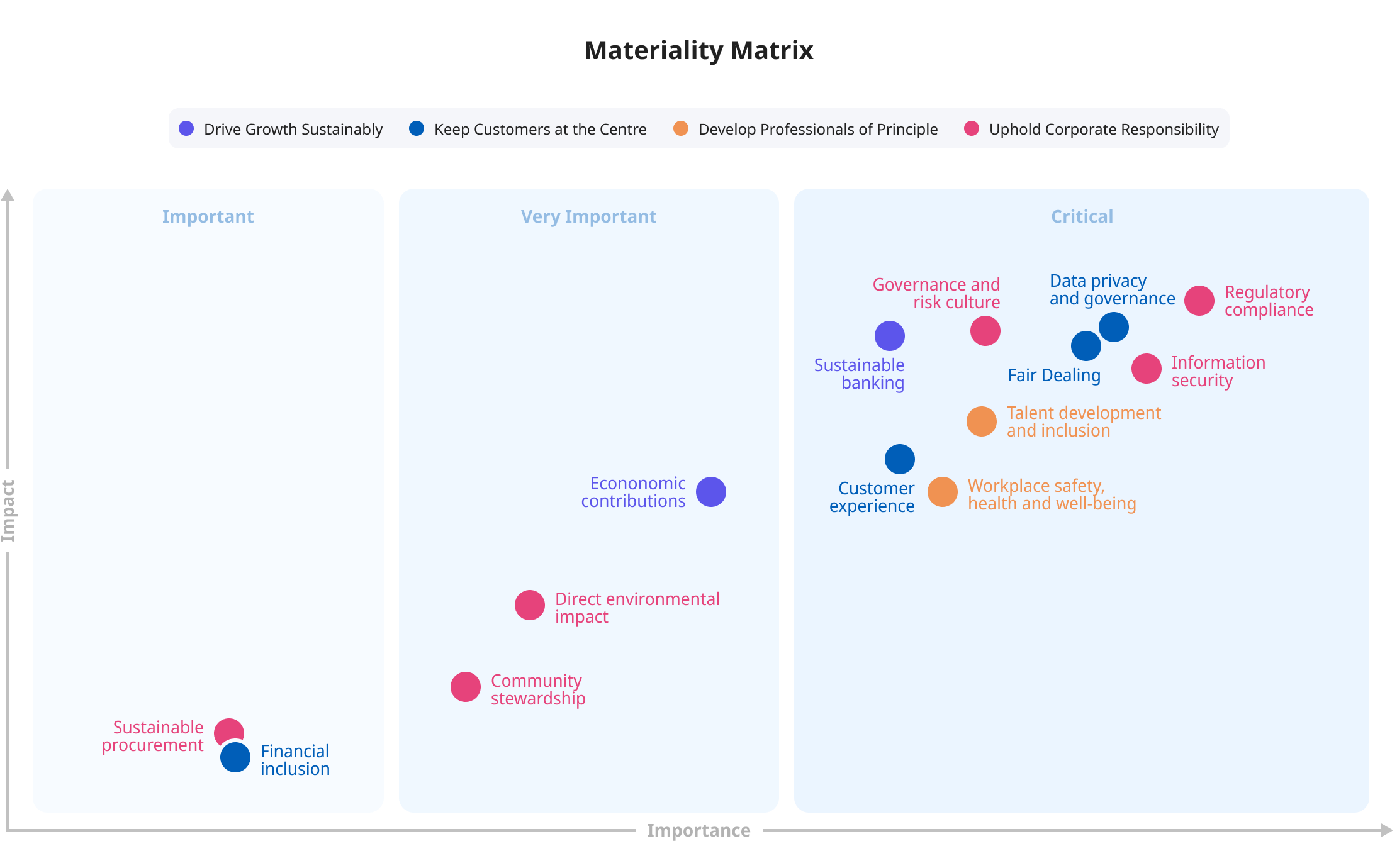
Materiality
The material factors in this report take reference from the UOB Sustainability Report 2023. UOBI then validates these material factors through the following:
- Identification results of stakeholder expectations and concerns. As stated above, we obtain feedback from multiple channels, including the call centre, where we collect feedback from customers for improvement as well as the General Meeting of Shareholders (GMS), where we acknowledge the expectations of the shareholders.
- Results of discussions and directions from the Board of Directors with the ESG Working Group and the sustainability report preparation team.
- Results of the identification of the banking issues updates that are relevant to the sustainability context.
- Compared to the previous year, there are material factor changes in this sustainability report.
Based on the approach above, UOBI determines material factors in this sustainability report.

Challenges of the Implementation of Sustainable Finance
One of the main challenges of implementing sustainable finance is to provide understanding to debtors from a business perspective. Furthermore, there are policy updates in relation to financing review process that is integrated with the environmental, social and governance assessment.
The implementation of UOBI's sustainable finance has been running since the enactment of POJK No. 51/ POJK.03/2017. A number of policies and activities have been implemented by UOBI such as dissemination and internalisation of sustainable finance classification for our customers, the piloting program for the Indonesian Green Taxonomy, sustainability campaigns to increase awareness for all our employees and the establishment of an ESG Working Group.
We continue to remind our employees about the importance of a sustainable and risk-based organisational culture as well as responsible behavior towards the environment, for example through minimizing the use of plastic and energy- saving practices.
